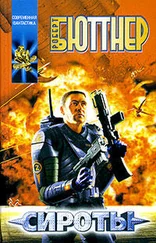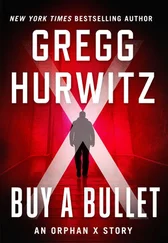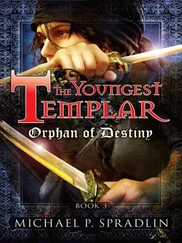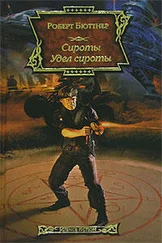Роберт Бюттнер - Orphan's Destiny
Здесь есть возможность читать онлайн «Роберт Бюттнер - Orphan's Destiny» весь текст электронной книги совершенно бесплатно (целиком полную версию без сокращений). В некоторых случаях можно слушать аудио, скачать через торрент в формате fb2 и присутствует краткое содержание. Жанр: Боевая фантастика, на английском языке. Описание произведения, (предисловие) а так же отзывы посетителей доступны на портале библиотеки ЛибКат.
- Название:Orphan's Destiny
- Автор:
- Жанр:
- Год:неизвестен
- ISBN:нет данных
- Рейтинг книги:3 / 5. Голосов: 1
-
Избранное:Добавить в избранное
- Отзывы:
-
Ваша оценка:
- 60
- 1
- 2
- 3
- 4
- 5
Orphan's Destiny: краткое содержание, описание и аннотация
Предлагаем к чтению аннотацию, описание, краткое содержание или предисловие (зависит от того, что написал сам автор книги «Orphan's Destiny»). Если вы не нашли необходимую информацию о книге — напишите в комментариях, мы постараемся отыскать её.
Orphan's Destiny — читать онлайн бесплатно полную книгу (весь текст) целиком
Ниже представлен текст книги, разбитый по страницам. Система сохранения места последней прочитанной страницы, позволяет с удобством читать онлайн бесплатно книгу «Orphan's Destiny», без необходимости каждый раз заново искать на чём Вы остановились. Поставьте закладку, и сможете в любой момент перейти на страницу, на которой закончили чтение.
Интервал:
Закладка:
THREE
ON THE MORNING OF OUR 224TH DAY on Ganymede, measured in Earth days, Jude Metzger celebrated his one-week birthday under Jovian skies. But the Ganymede Gazette, the daily paper my guys published on the backs of old ration wrappers, had a bigger headline.
For 223 days Ganymede’s skies didn’t change. The daily, orbit-induced windstorms whirled golden dust above the mountains. Beyond their peaks and the dust clouds shone stars and Jupiter’s visible lesser moons, Europa, Io, and Callisto, some days pink, some days pearlescent or violet against space’s indigo. Over all loomed ever-orange Jupiter, at each rise and set magnified by the artificial atmosphere’s lens so the gas giant filled the horizon.
We all watched the sky every one of those days. Not because it was beautiful but because there lay home.
On the morning of day 224, at five-zero-three Ganymede Standard Time, Brumby burst into the mess cave, binocular range finder in one freckled hand, the other pointing back over his shoulder.
Brumby didn’t have to speak. Only one thing would excite any of us interplanetary castaways like that.
Egg-scrambled (concentrated) tubes and therm cups clattered to the frozen lava floor. Before the echoes stopped rebounding off the cave walls and ceiling, three hundred combat-boot pairs thundered out into pale twilight.
I let the men clear out, then followed them onto the rocky terrace that Brumby and the surviving engineers had blasted out of the mountainside. Architecture on Ganymede involved blowing things up, since we had three building materials to work with: rock, rock, and rock.
By the time I got outside, someone, not Brumby who stood alongside me to avoid trampling, had picked it out. I simply let my eyes follow the pointing fingers.
Just a luminous fly crawling toward us across the deep purple ceiling of our world, but the prettiest sight I had ever seen. The relief ship. Maybe.
Brumby turned to me. “Sir, how long you figure before the first of us gets off the rock?”
“First question is how we make sure we all get off, Brumby. Order alert status.”
Brumby stiffened. “Sir? Alert?” Brumby and seven hundred cold, exhausted, lonely GIs figured it was party time, not jump-in-our-holes time.
It may be no coincidence that “General” and “Grinch” begin with “G.” Alert status meant the troops dispersed to fighting positions. “Disperse” meant walk, crawl, and climb. Three things GIs had bitched about since Troy.
Well, there were, historically, two schools of military thought here. Concentration of force, like the Romans huddling in phalanxes, shoulder-to-shoulder and shield-to-shield, or dispersal, spreading troops out so one grenade couldn’t get a whole squad. Short, the general in charge of the Army Air Corps at Pearl Harbor a hundred years ago, huddled all his aircraft together so they would be easier to guard. And created perfect targets for Japanese bombs.
So I was a dispersal man, myself. Even if my grunts hated it. The sooner we fled this rock the sooner I could shed the stars on my shoulders and slide back to being a grunt, myself. Oh, I hoped they’d let me keep a lieutenant’s bar. But presiding by default over an accident had made me no general officer.
“Brumby, all we know is that speck is somebody coming. Might be relief. Might be Slugs. Pass the word to the battalion COs.” The Ganymede Expeditionary Force’s surviving “battalions” weren’t much more than platoon-sized, maybe fifty soldiers each. Word-passing would take Brumby sixty seconds.
Brumby half shook his head, denying the possibility that there might still be Slugs, more than questioning my order.
“Brumby, if it’s our guys, they’ll be in field-strength radio range in a couple hours.” Generals — even field-promoted spec fours — didn’t need to justify orders to their aides. Maybe it was my way of telling him I wanted that speck to be our guys, too. “The men can break out the potato vodka then.”
Brumby’s jaw sagged. Surely he had realized I knew about the still? During the six-hundred-day voyage out here from Earth, one of Howard’s lab techs had hidden his booze-making equipment and his potato raw material in a Hope escape pod, never expecting he, the pod, and his still would wind up dirtside, stranded among the embarked-division survivors.
Brumby grinned, then saluted. “Yes, sir.”
While Brumby passed the word, I cupped a hand over one ear and radioed Howard. “Hotel, this is Juliet. Say your estimated time of arrival and position. Over.” Dispersal didn’t mean having half your force miles away.
“Jason, it’s Howard. We’ll be back there in an hour. At least that’s what they tell me. I’m not sure where we are. Did you see it?”
Howard land-navigated like a blind Cub Scout but I should have known he would have spotted anything that moved in space. I said, “You think it’s our guys? What if it’s Slugs?”
“The Pseudocephalopod displaced between conventionally mapped spatial locations by transiting temporal-fabric folds.”
“In English, Howard.”
“Slugs jumped through worm holes that join points where space folds back on itself.”
“Another hunch?”
“It had to be that way. Stars with planetary systems are too far apart to be reached by conventional travel at sub-light speeds. Even if It lived a long time.”
“Okay. So?”
Howard continued. “So, if It still existed, for which we have no credible intelligence, It would most likely appear to us in a way we never expected, not by replicating tactics that failed It before.”
“Why not? Human armies repeat mistakes all the time. Even the intelligent ones.”
“It wasn’t a human intelligence.”
I nodded, handset to my ear. Howard might be a professor but prudent soldiers didn’t survive by underestimating their opponents.
“Jason, that’s Excalibur up there.”
“Excalibur?”
“Hope’s sister ship. She was under construction when we left home thirty-one months ago. I thought you knew.”
Howard thought nothing of the kind. He might be a professor at heart but as an Intelligence officer he had bought into all the Spook need-to-know crap. The Spook rationale would have been that if none of the rest of us knew there was a follow-on assault ship, we couldn’t spill the beans if the Slugs captured us.
“The trip from Earth takes almost two years with chemical-fuel technology. How do you think Excalibur got here seven months behind us if she didn’t leave while we were still under way?”
I drew a breath, then let it leak out like I was about to squeeze off a round. No point scolding. Especially when the news was good. “Okay, Howard. That ship’s not Slugs.”
“That would be obvious to any schoolchild. But one of my staff officers actually suggested we go on alert. Isn’t that ridiculous?”
“I guess.”
Two Earth days later Howard Hibble and I stood alongside a hand-cleared, two-mile-long runway. Another of Brumby’s better-living-through-explosives projects, he had sliced and relocated mountains with a diamond cutter’s precision, using plastique that looked as benign as cookie dough.
We watched Excalibur’s first relief ship carve a red friction streak as it dropped across the sky from orbit. By the time it drew close enough to be bigger than a speck, its skin had cooled from the thousand degrees Fahrenheit of a ten-thousand-mile-per-hour descent. The ship spun a contrail like spider silk as it arced down through the artificial atmosphere.
The relief ship touched down on Ganymede at two hundred miles per hour, then boomed down our runway past us. Our shoulders hunched, we turned and watched its landing run-out, as much to shelter from the wind-wash the ship sucked behind it as to see it.
Читать дальшеИнтервал:
Закладка:
Похожие книги на «Orphan's Destiny»
Представляем Вашему вниманию похожие книги на «Orphan's Destiny» списком для выбора. Мы отобрали схожую по названию и смыслу литературу в надежде предоставить читателям больше вариантов отыскать новые, интересные, ещё непрочитанные произведения.
Обсуждение, отзывы о книге «Orphan's Destiny» и просто собственные мнения читателей. Оставьте ваши комментарии, напишите, что Вы думаете о произведении, его смысле или главных героях. Укажите что конкретно понравилось, а что нет, и почему Вы так считаете.







![Дэн Бюттнер - Где живет счастье [Правила жизни самых счастливых людей планеты] [litres]](/books/395574/den-byuttner-gde-zhivet-schaste-pravila-zhizni-samyh-thumb.webp)



